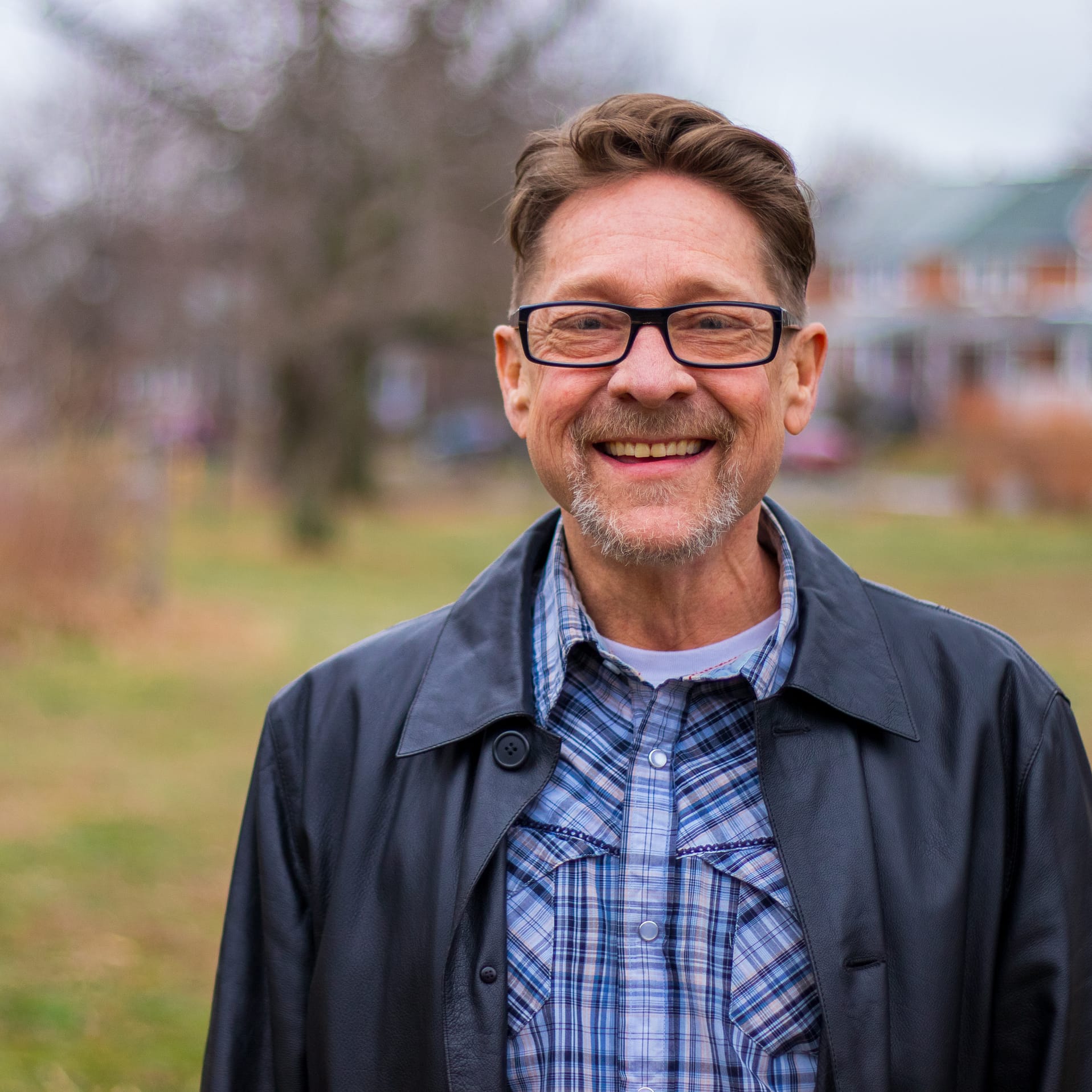
Tom La Follette provided Compassion & Choices his story in September of 2019.
I was diagnosed with HIV in my early 20s and, since then, I have focused on living a health conscious life. For many years, my disease was stable but I had a lapse in my health insurance and was unable to receive my medications for six months as a result. After not having my medicine, my health became unstable and in 2010, at the age of 47, I was diagnosed with Kaposi’s sarcoma, a terminal, opportunistic infection from HIV/AIDS.
I started chemo immediately and have endured five different chemo infusion treatments over the span of the last nine years. My cancer has resulted in painful lesions throughout my body, including in my mouth, in the lymph nodes of my neck, on my feet, on my chest and on my skin. For much of this time, I have been prescribed strong pain medications, such as fentanyl, to manage the painful symptoms of Kaposi’s sarcoma.
This past year, I decided I would no longer accept infusion chemo treatments and also declined narcotics to manage my pain. The last time I went in for an infusion, the setting had changed from a 25-seat large room with privacy for each patient to that same space for 80 patients, with no privacy or extra seating available for family to support the person with cancer. The environment was dehumanizing and I evaluated that, especially with no improvement to my cancer, this was unacceptable. I walked out of the room and thought, I can’t do this. I’m not going to do this anymore.
I’ve had a really good life and I love life. I have been living with a terminal illness the majority of my life and I’ll drag it out for as long as I can, but I know my time is coming. I know how chemo feels and I don’t have any time to waste anymore–I want to enjoy the good days I have left.
You can fight and fight and fight and fight. People do that. I did it. But sometimes you get tired of fighting after a while. And then you get back up. Then you’re done with fighting again. When your body starts shutting down, it’s unfair to expect someone to keep fighting.
The lesions are all over my body now. I can see and feel my body deteriorating. If it weren’t for Mark, my husband of 36 years, there’s no way I could live independently without in-home care. My lesions feel like shingles. I can’t stand up for more than a moment because my legs feel like they’re on fire. I now use a wheelchair when I need to walk more than just a couple of steps because I am quickly out of breath. There’s no cure for Kaposi’s sarcoma and I’ve accepted that things aren’t going to get any better.
It’s been an up and down process over the years, but this past year I haven’t bounced back as easily. I just started taking an oral chemo treatment to see if that may slow the progression, but so far it hasn’t seemed to make a difference–I’ve noticed more lesions develop.
I ask that lawmakers have mercy for their terminally ill constituents. The toughest and hardest decision is for the terminally ill person to decide if and when to take their aid-in-dying medication. I love life. I love spending time with my husband Mark and our two wonderful dogs Lukas and Bruno. I’m happy right now, but my body isn’t–it’s suffering. I think it’s shameful for legislators to not support medical aid in dying as an option. My life is not theirs and they can’t understand what I’m going through. Again, this option is only for people who are terminally ill.
Watch Tom’s last video in 2020 urging Delaware lawmakers to pass the End of Life Option Act
Mail contributions directly to:
Compassion & Choices Gift Processing Center
PO Box 485
Etna, NH 03750